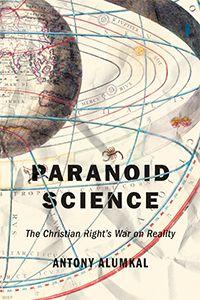
These four movements — the “ex-gay”, intelligent design, conservative bioethics, and climate-change denial movements — rely on fallacies such as the false-choice dichotomy, which portrays certain choices as absolute either/or questions, to dismiss the work of the scientific establishment as conspiracies that threaten to undo society’s moral foundation. In its place, they advance their own scientific analysis, which the movements’ leaders purport to be factually superior. In addition to his exploration of the heart of the Christian Right’s fight against science, Alumkal considers the consequences for not just the evangelical community in which it operates, but also for the American public as a whole.
The author: Anthony Alumkal *00 received a Ph.D. in sociology from Princeton in 2000. He is an associate professor of sociology of religion at the Iliff School of Theology in Denver, Colorado, and is also the author of Asian American Evangelical Churches: Race, Ethnicity, and Assimilation in the Second Generation (LFB Scholarly Publishing).
Opening lines: “My book’s basic premise is that science is under attack by the Christian Right, whose leaders appeal to paranoid conspiracy theories by claiming that many scientists peddle misinformation and conceal their actions from the public. Supposedly these scientists threaten to undermine the moral foundation of American society. … The combined effect of these four ‘paranoid science’ movements is to create an alternative reality where Christian Right leaders’ religious beliefs are safe from disconfirmation.”
Reviews: Publishers Weekly says, “Through extensive research, Alumkal provides a rich, nuanced, and detailed view of mid-20th-century American evangelicalism’s right-wing political expression and its often dangerous impact on science in the service of the common good. … Education and persuasion are the tools for change, and Alumkal’s book succeeds in both respects.”

